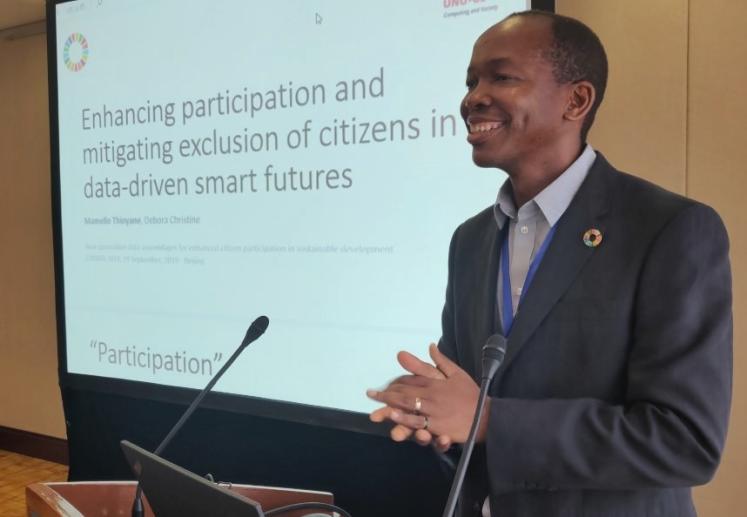How can citizens meaningfully contribute to protecting the environment, monitoring human rights, strengthening educational outcomes, and upholding social accountability in their communities? This is one of the many questions we discussed at CODATA2019, where the conference theme, “Towards next-generation data-driven science” encouraged participants to explore citizen science in many forms.
On September 19, UNU Macau and UNU Institute for Integrated Management of Material Fluxes and of Resources (UNU-FLORES), co-hosted a session titled “Next generation data assemblages for enhanced citizen participation in sustainable development” to explore data-driven engagement and citizen participation in sustainable development.
The session discussed case studies of citizen participation in data-driven projects across four domains: water quality monitoring (i.e., SDG 6), human trafficking victim identification (i.e., SDG 5, SDG 8, SDG 10, SDG 17), data-driven vocational upskilling (i.e., SDG 4, SDG 8), and social accountability monitoring (i.e., SDG 17, SDG 6).
Read the full guest blog post on the Global Partnership for Sustainable Development Data by Dr Mamello Thinyane of UNU Institute in Macau and Sabrina Kirschke of UNU-FLORES for key insights that emerged from the discussion.


